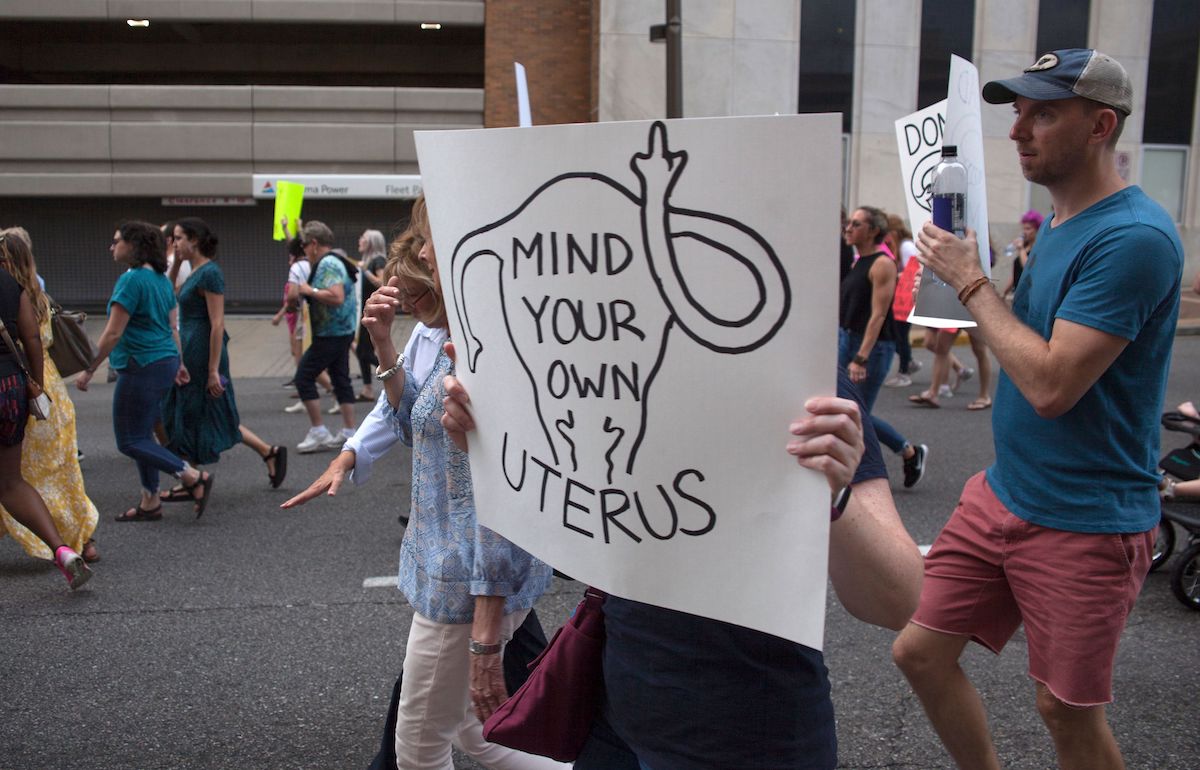Pro-Choice States Should Have Acted a Long Time Ago to Protect Abortion Rights

Welcome to The Week in Reproductive Justice, a weekly recap of all news related to the hot-button issue of what lawmakers are allowing women to do with their bodies!
Unless you’ve spent the last month or so living under a rock, you’re probably aware that conservative states have been waging all-out war on abortion rights, with total or near-total abortion bans sweeping through states like Alabama, Georgia, Louisiana, Missouri, and others. In response to this almost unprecedentedly grave situation for women and pregnant people’s human rights, other states have taken action to protect and expand reproductive rights.
This is critically important for many reasons, not the least of which include that women from states where abortion is prohibited could soon travel out-of-state for abortion care at higher rates, but it’s also important because passivity, compromise, and lack of attention paid to abortion rights is a big part of why we got to this point in the first place.
Let’s be clear: We didn’t get to a point of new states passing bans on abortion care each week overnight. It took years for anti-abortion politicians and activists to create this landscape, and it all started with complacency—complacency among pro-choice voters that won the anti-abortion faction key majorities in state legislatures across the country, not to mention hundreds of new anti-abortion laws in just the last seven years as a result of these majorities. And when Donald Trump and Mike Pence were elected on their pledge to exclusively appoint anti-abortion Supreme Court Justices and federal judges, anti-abortion states only grew bolder.
Now, states with pro-choice legislatures are answering back in a critical way. This week, both Vermont and Illinois’ governors signed sweeping legislation to protect abortion rights. Illinois Gov. J.B. Pritzker signed a bill that voids decades-old anti-abortion regulations, including restrictions on later abortions and criminal penalties for abortion providers. The bill also requires insurance coverage of abortion and related reproductive healthcare, and firmly acknowledges abortion as a human right. In Vermont, Republican Gov. Phil Scott signed a bill affirming abortion as a fundamental human right.
On the surface, both bills might sound redundant; abortion is still legal in Vermont, Illinois, and all states, with the bans in Alabama and Georgia yet to take effect, and Roe v. Wade still in place, but the bills are critical to preparing for a future that the politics of today seems to be grimly pushing us toward. That future is one in which Roe is reversed or gutted, and the responsibility of protecting the legality and accessibility of abortion could fall on individual states.
There is hope—hope that in 2020, we elect one of the many Democratic presidential candidates who have shared bold plans for protecting abortion rights on the federal level, if elected, but no matter what happens in 2020 and beyond, it’s clear that states can no longer leave abortion rights on the back-burner. If there’s any hope of preventing America from becoming a nation of forced births and skyrocketing maternal death rates, we’re going to need decisive action on every level of government.
Maine expands abortion access with new law
On Tuesday, Maine Gov. Janet Mills signed a bill that would expand abortion access by allowing nurse practitioners to offer abortion care via medication abortion. Maine currently has three clinics where women can receive abortion care from physicians, and now, nurse practitioners and physicians’ assistants can also administer abortion by prescribing abortion pills.
The new law will not only increase abortion access at a time when attacks on reproductive rights are at a near all-time high, but will also serve to destigmatize abortion. Due to laws that severely limit who can provide abortion services or administer medication abortion, abortion is misrepresented as complicated, dangerous, and unsafe, despite extremely low complication rates. Reforms like those implemented in Maine this week are critical to not only ensuring that abortion is more accessible by increasing the amount of qualified people who can administer abortion services, but also by challenging harmful, prevalent narratives about abortion.
Nebraska passes law to spread lies about abortion
Because there’s no such thing as a week of purely good news involving reproductive rights, on Monday, Nebraska Gov. Pete Ricketts signed into law a bill that would require abortion providers to lie to their patients, telling them that medication abortion can be reversed.
“Abortion pill reversal” is an increasingly popular—and dangerous—anti-abortion myth, which asserts that if someone has taken the first of the two abortion pills and regrets their choice, they can “reverse” the effects of the first pill by consuming dangerously large amounts of progesterone daily throughout the first trimester. The abortion reversal theory stems from unethical experimentation on and manipulation of pregnant women, and relies on the false narrative that abortion is inherently so shameful that it’s natural for women to regret their decision.
In reality, 99 percent of women don’t regret their abortions, and as for that 1 percent, everyone is allowed to feel differently about their own experiences, but that doesn’t mean those personal feelings should dictate the rights and options of all other women.
Simply put, the new law in Nebraska will now join a handful of other states including Arizona, South Dakota, Utah, and others in requiring abortion providers to lie to and place women’s health and safety at risk for the sake of politics.
Tune in next week to see what lawmakers will try next in their never-ending mission to derail reproductive justice!
(image: SETH HERALD/AFP/Getty Images)
Kylie Cheung writes about feminism and politics, with a focus on reproductive justice. Follow her on Twitter @kylietcheung, or learn more about her writing at www.kyliecheung.tumblr.com.
Want more stories like this? Become a subscriber and support the site!
—The Mary Sue has a strict comment policy that forbids, but is not limited to, personal insults toward anyone, hate speech, and trolling.—
Have a tip we should know? tips@themarysue.com